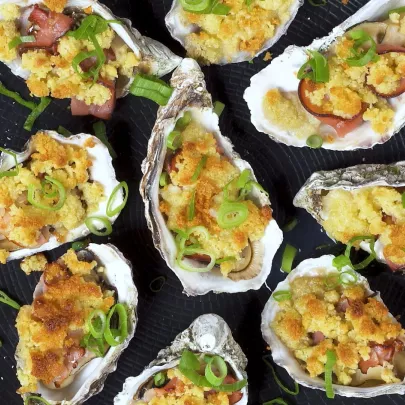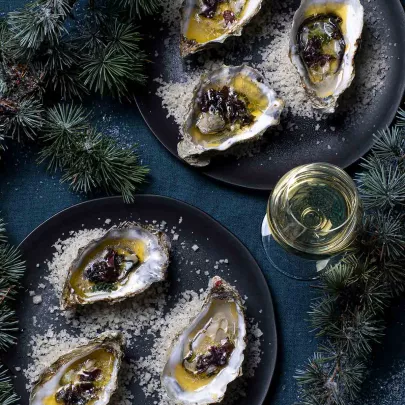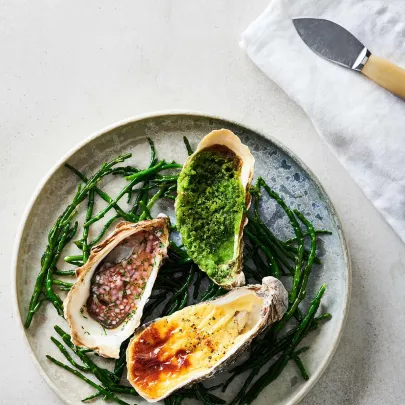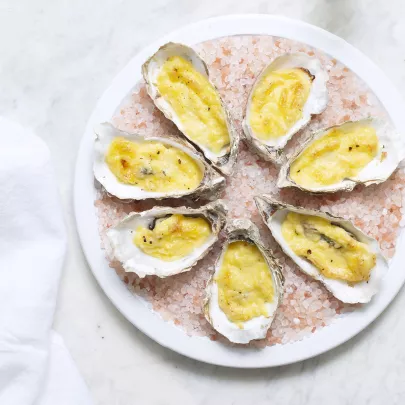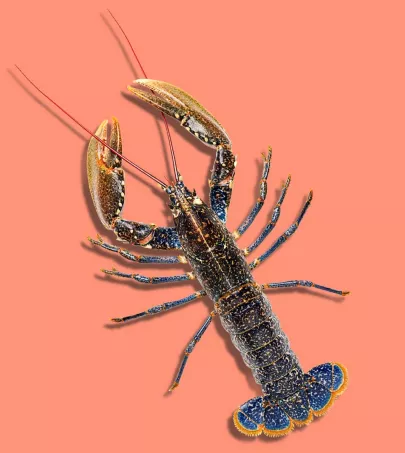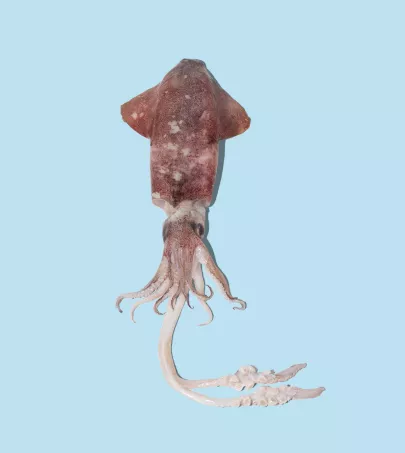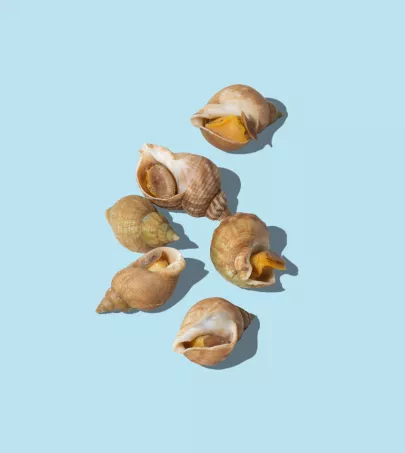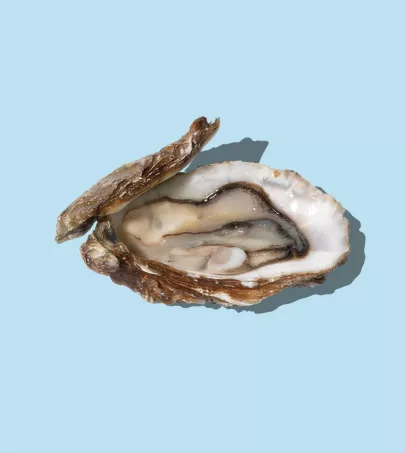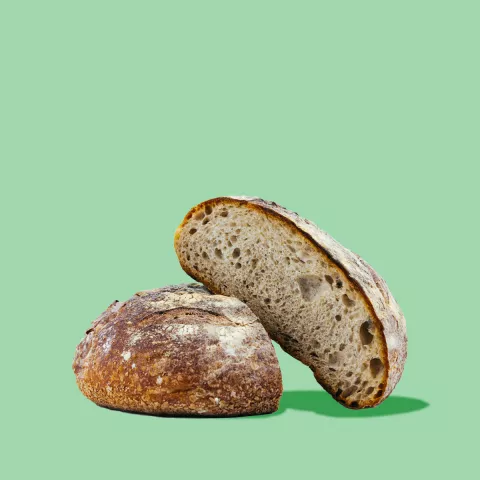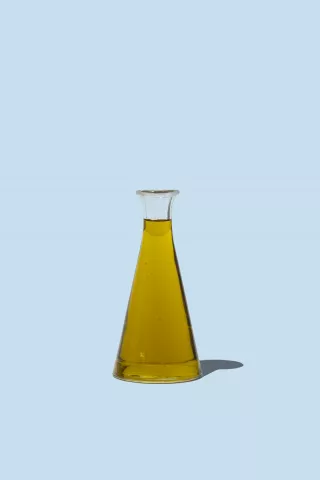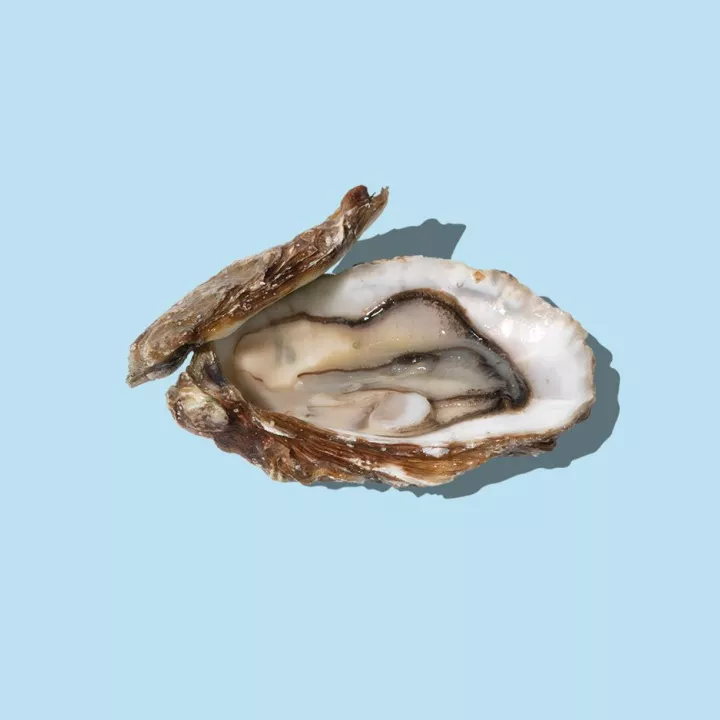
Marennes-Oléron oysters PGI
Nouvelle Aquitaine
Marennes-Oléron oysters PGI owe their green color and unique taste to time spent growing in "claires", clay ponds left over from old salt marshes, which are rich in phytoplankton. Green "Fines de claires" oysters were the first seafood to be awarded a Label Rouge, in 1989.
What you need to know
Marennes-Oléron is Europe's leading oyster-farming basin and accounts for half of French production. Oyster farming first began there in the mid-19th century. The salt marshes had begun to struggle in the face of competition from salt works in the Midi region, and were therefore converted into oyster farms. It is the farming and ripening of Marennes-Oléron oysters in "claires" that makes them special. Left over from the old salt marshes, these are shallow clay ponds, in which fresh water and salt water mix with each tide. Phytoplankton, which the oysters feed on, thrive there. There is one micro-algae in particular, the Blue Navicula, which gives Marennes-Oléron oysters their green color, as well as their unique taste.
There are four types of Marennes oysters: the fine de claire, the spéciale claire, the fine de claire verte and the pousse en claire. These last two categories are also the only French oysters that have a Red Label.
Fines de claires: these spend 28 days in the claire, are lean and have a balanced flavor.
Spéciales de claire: these are the oysters selected for their larger size and regular shape. They are then matured in clairesfor several weeks. They are plumper than the fines de claires.
Fines de claires vertes: the first seafood product to be awarded the Red Label, in 1989. These oysters are of a superior quality. They have a nice round shell and a striking green color. They are lean.
Pousses en claire: these also have a Red Label and are the top of the range Marennes-Oléron oysters PGI. Whilst the other varieties are only matured in the claire, these are bred there: they stay there for 4 to 8 months, very few to each pond (maximum 2 to 5 oysters per 11 square feet compared to 20 for the others). They are plumper and have a pronounced, lingering flavor of the terroir.
Characteristics
Look
Taste
Nutritional benefits
Oysters are naturally low in fat and rich in very high-quality proteins. They are also low in cholesterol (3 to 4 times less than meat). They contain phosphorous and calcium, as well as trace elements like zinc, selenium and copper. Therefore, they are particularly recommended for sportsmen and women, to replace lost minerals.
Editor's note
How to use
Preparing and Serving Marennes-Oléron oysters PGI
Oysters are classed from 0 to 5. The 5s are the smallest and the 0s are the largest. The most common sizes are 3 and 4. They must be opened just before eating, using a knife with a short, pointed blade which is inserted two thirds of the length from the hinge, with the blade flat. Once opened, the oysters should be kept flat so as not to lose any of the liquor. You can rest them on seaweed, coarse salt or use a specially designed plate with hollows for the oysters. Remove the oysters with no water left or which do not react when you touch the edge of the mantle with the tip of a knife.
Pair with
To drink: Muscadet, Chablis, Entre-deux Mers, Pouilly-Fumé, Champagne.


